Coronavirus: What are the guidelines on childcare in NI now?
- Published
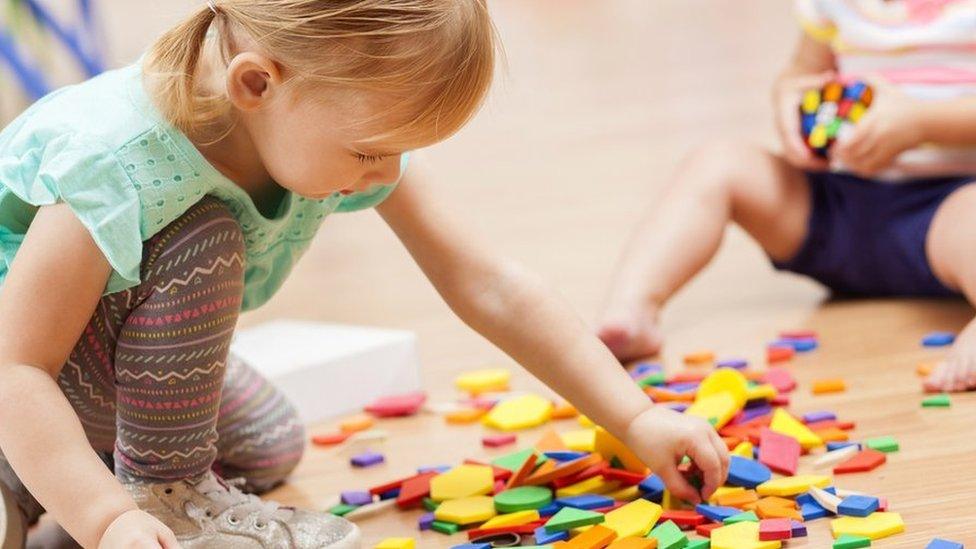
The coronavirus lockdown forced many people in Northern Ireland to work from home - but with schools closed, a lot of parents have also had to look after their children at the same time.
With some sectors of the economy now reopening, what childcare is available for parents who are expected to return to their place of work?
Here's a guide to the latest guidance in Northern Ireland, and what it means for parents and providers.
Who can access childcare in Northern Ireland?
At the start of the pandemic, some schools and other childcare settings stayed open on a limited basis, for parents classed as key workers, and vulnerable children.
Those restrictions have not changed, but earlier this month the definition of a key worker was widened by the Departments of Health and Education.
This was to pre-empt more parents returning to jobs in retail, with the sector allowed to fully reopen from 12 June.
The full list of key workers can be seen here, external.
However from 1 July, that list is set to be scrapped to allow more parents to access childcare, ahead of the hospitality and hair/beauty sectors opening on 3 and 6 July respectively.

Life is beginning to return to streets which were empty for weeks
What's the situation for day-care centres and nurseries?
Not all of them can open yet.
There are 344 day nurseries in Northern Ireland, about 80% of which are private businesses, according to the Early Years Organisation.
It is estimated more than nine in 10 nurseries and day-care providers closed in late March, because of the reduction in numbers of children attending.
To reopen, centres must have demand for at least 25% of the overall number of registered places or 15 vulnerable children or those of key workers. However, that will change at the start of July.
There are also currently restrictions on group sizes to minimise the spread of the virus.
What will day-care centres look like now?
The Departments of Health and Education, which both have responsibility for childcare, have advised day-care centres to organise children, external in "play pods".
First Minister Arlene Foster said there were "no plans" to limit the numbers of children that day-care centres can admit from 1 July.
However the departments say play pods of children should be as small as possible, limited to 12 children and with the same members of staff assigned each day.
Lynda Courtney runs a day-care centre in Moygashel, County Tyrone, which is preparing to reopen in the next fortnight.
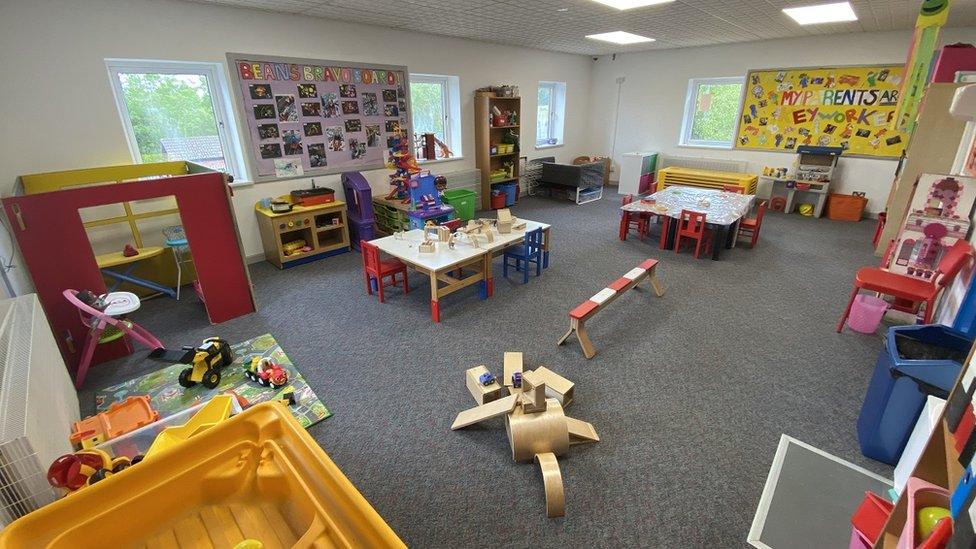
Day-care centres have been advised to organise children into "play pods"
She said she feels very positive about resuming business, but advised parents that the centres will look different.
"We've had to remove soft furnishings and some toys, and there are now more entrances and exits," said Mrs Courtney.
"A lot of parents are anxious that their child can't be lifted up or even touched, but the play pods will make it feel like they've their own little family in day care.
"We've had to think outside the box and look at ways of changing, but we've adapted."
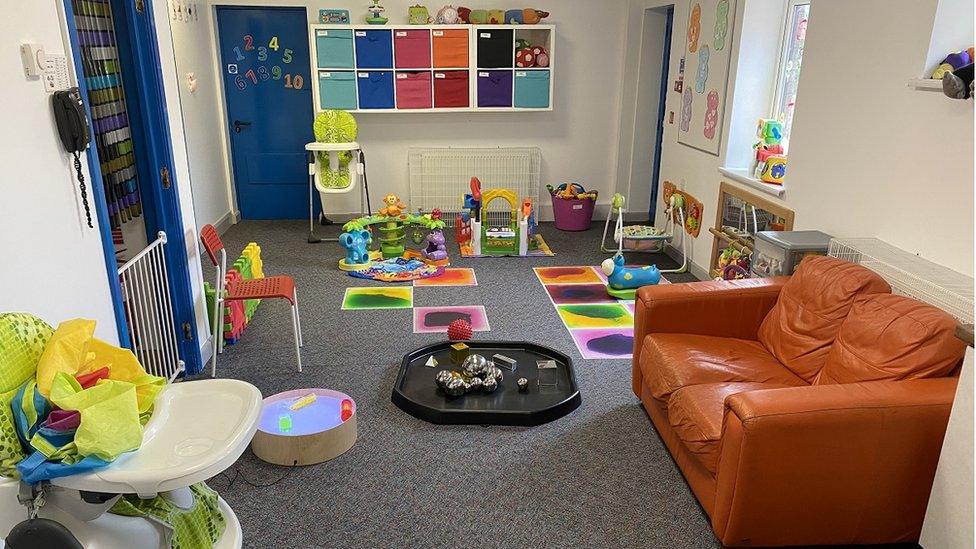
Are childminders available?
Yes, but they can also only accept vulnerable children and those of key workers, although this will change from 1 July.
There are about 2,700 self-employed, registered childminders in Northern Ireland. Just over 1,100 continued to work during the lockdown.
Currently, they can look after the children of three families at one time, according to government guidance, external.
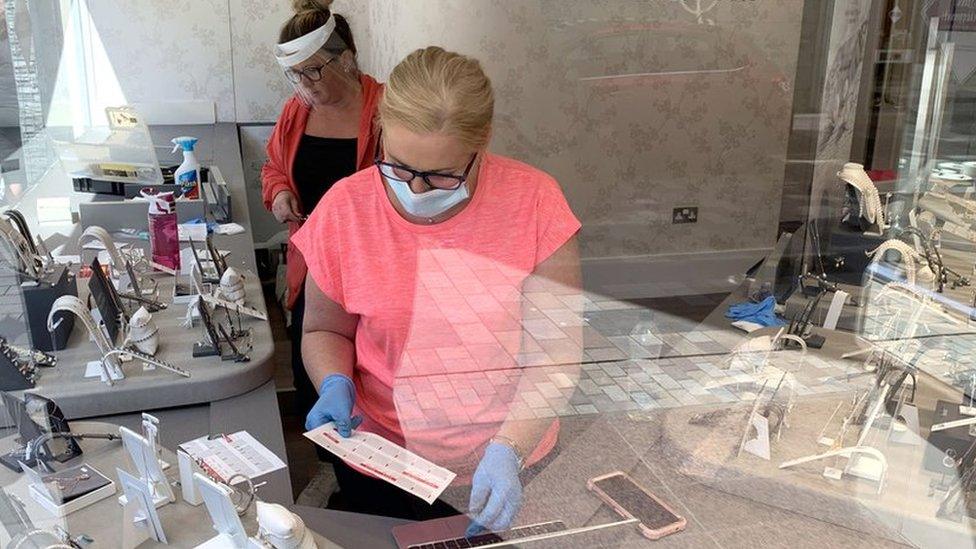
With retail reopening, more people are having to return to work and are struggling to access childcare in a short space of time
This can increase to four families at the one time from 29 June and to five families in August - subject to medical and scientific advice.
Patricia Lewsley-Mooney of the Northern Ireland Childminding Association welcomed that decision, but said more still needs to be done.
"We need to be talking to the Department for the Economy with regard to employers being a bit more understanding when it comes to employees' access to childcare," she said.
"We're hearing anecdotally that some parents are being told if they do not go back to work by Monday, there could be disciplinary processes in place.
"It's not that they don't want to go back to work, but it may be too short notice, or they're not on a childminder's list or their childminder can't take more kids."
What if I can't access a childminder or day care centre?
From 12 June, places of worship and community centres have been allowed to open to provide childcare, following a decision taken by the executive.
But questions remain about staffing of the facilities, and how many hours they will open per day.
The Executive Office says a specific childcare recovery plan will be published to restore the sector to pre-Covid-19 levels "as quickly and safely as possible to enable working parents to return to their places of employment".
Plans are also being made to open summer schemes on a limited basis, children with educational needs and the children of key workers will be prioritised.
Can grandparents look after children?
Pre-lockdown, many parents would have relied on grandparents for help with childcare.
Families are still not permitted to visit each other indoors, so many people will not be able to go down this route.
However, adults who live alone can join a support bubble.
A grandparent who lives alone could potentially form a bubble with one of their children, which means they could go to see them and interact with their grandchildren.
How many people in Northern Ireland rely on childcare?
About 350,000 workers in Northern Ireland have dependent children, according to the Nevin Economic Research Institute (NERI).
Its research suggests 70% of them are likely to have "intensive childcare requirements".
Childcare was not specifically mentioned in the executive's five-step Pathway to Recovery plan, but Ms Lewsley-Mooney said she recognised the executive is now focusing on the issue.
"Childcare is a lynchpin for the whole economy," she added.
What other information is available?
The Departments of Health and Education say parents seeking childcare should consult the Family Support NI website, external to find out what is available in their area.
A helpline is also available on 0808 8020 400, where an early years team within the local health trust can provide advice on childcare solutions in a parent's area.
- Published12 June 2020
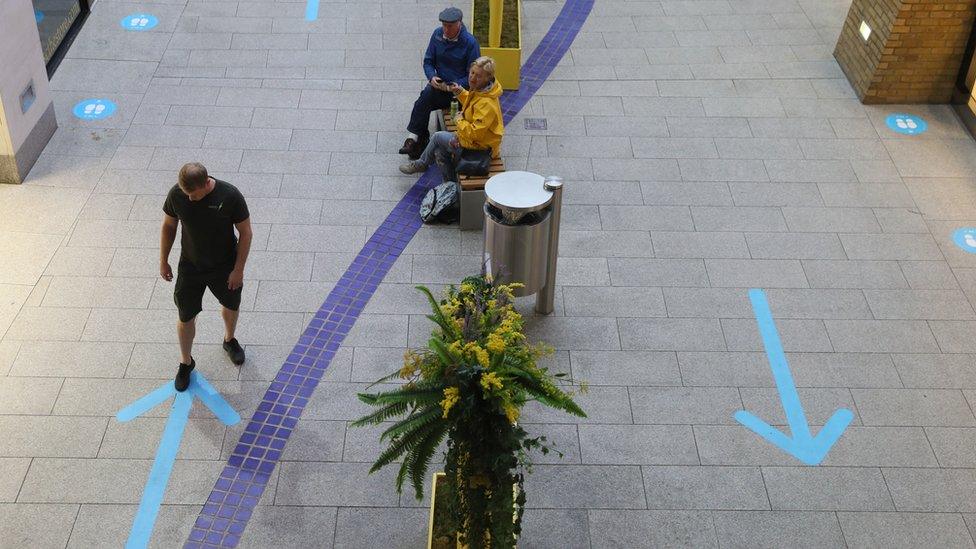
- Published4 June 2020
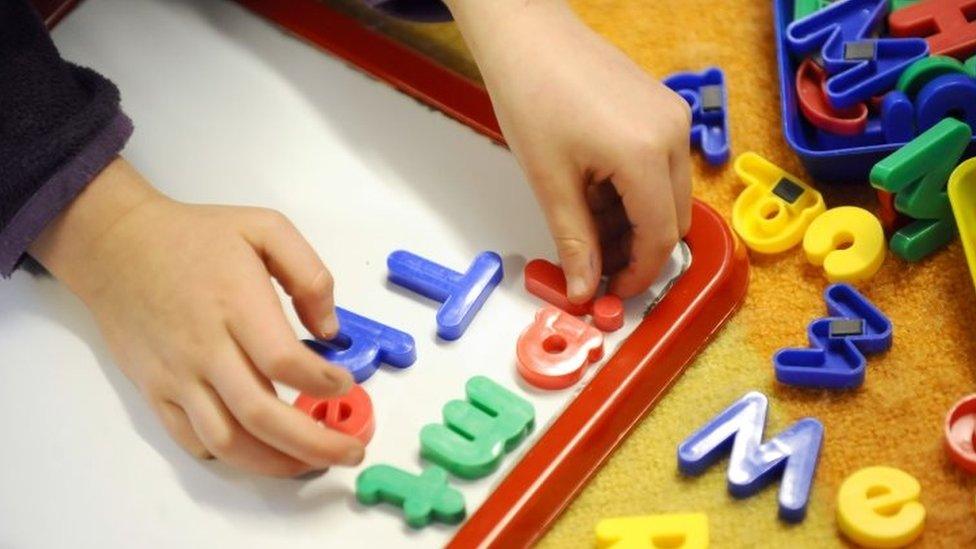
- Published31 May 2020
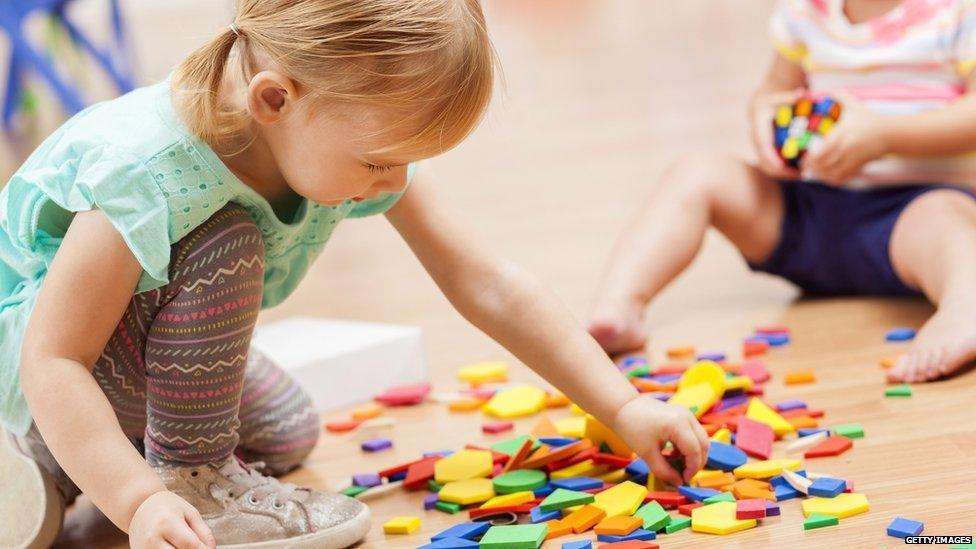
- Published10 April 2020
